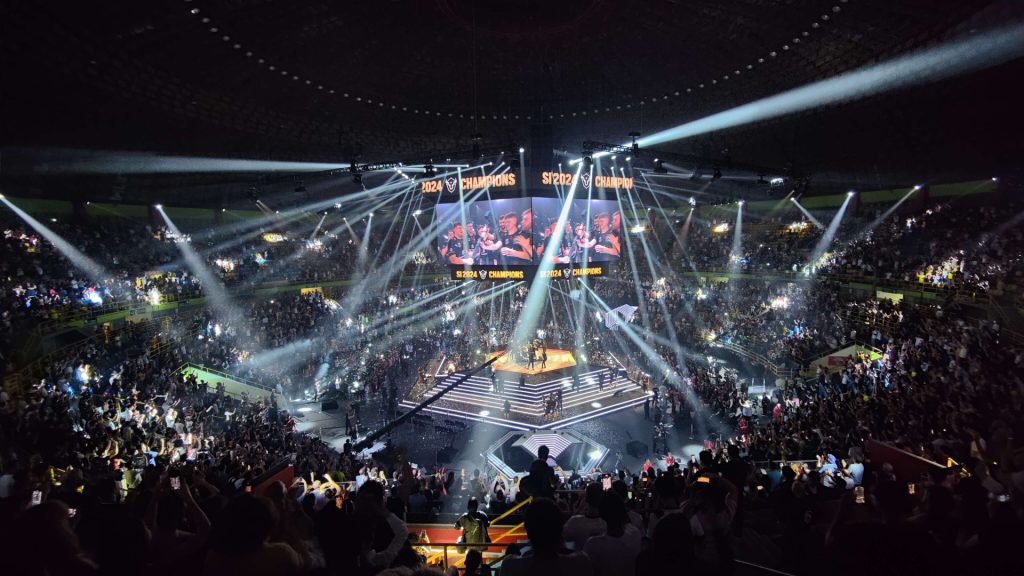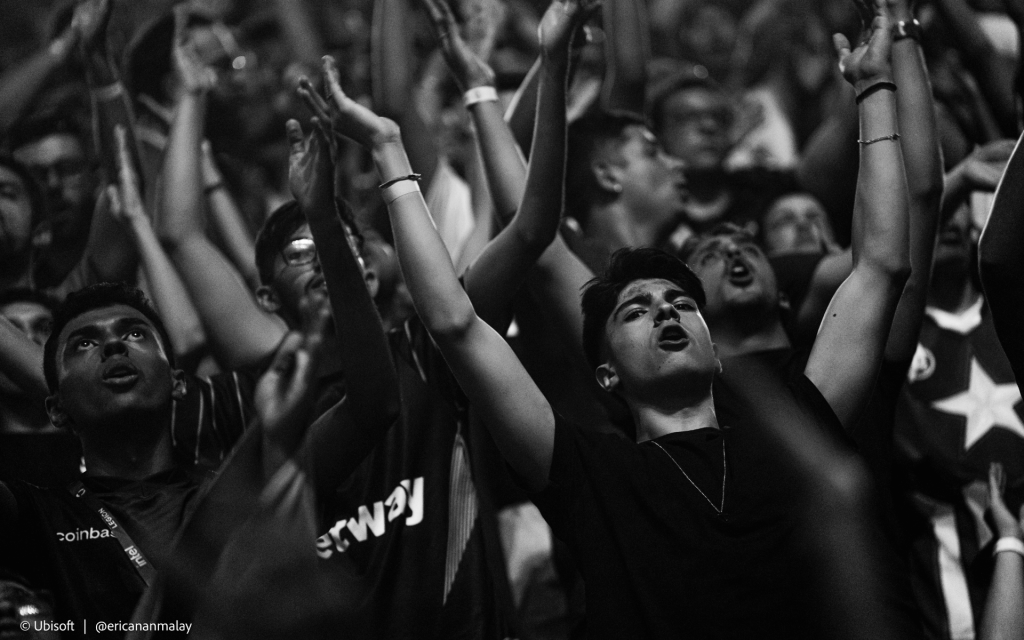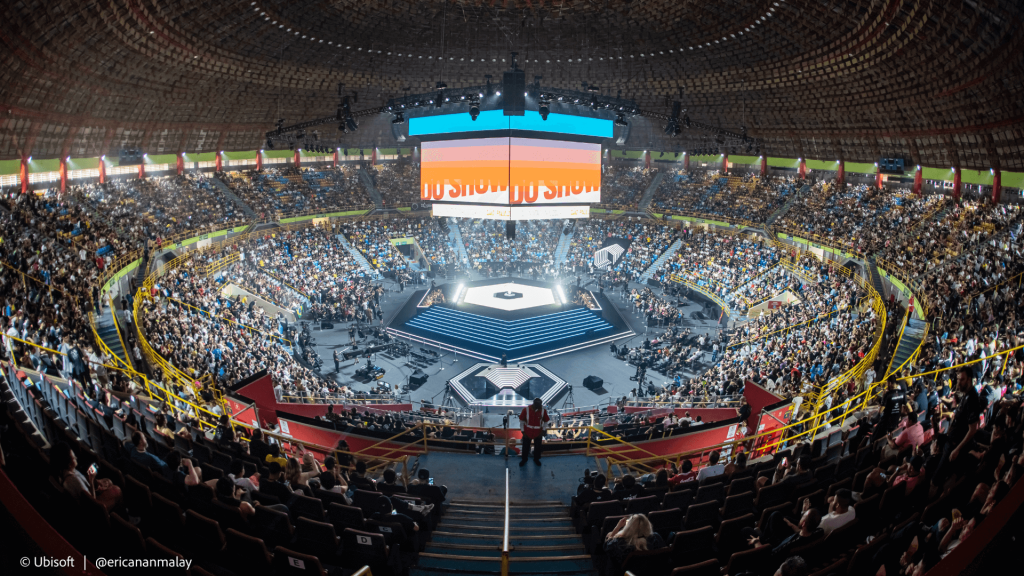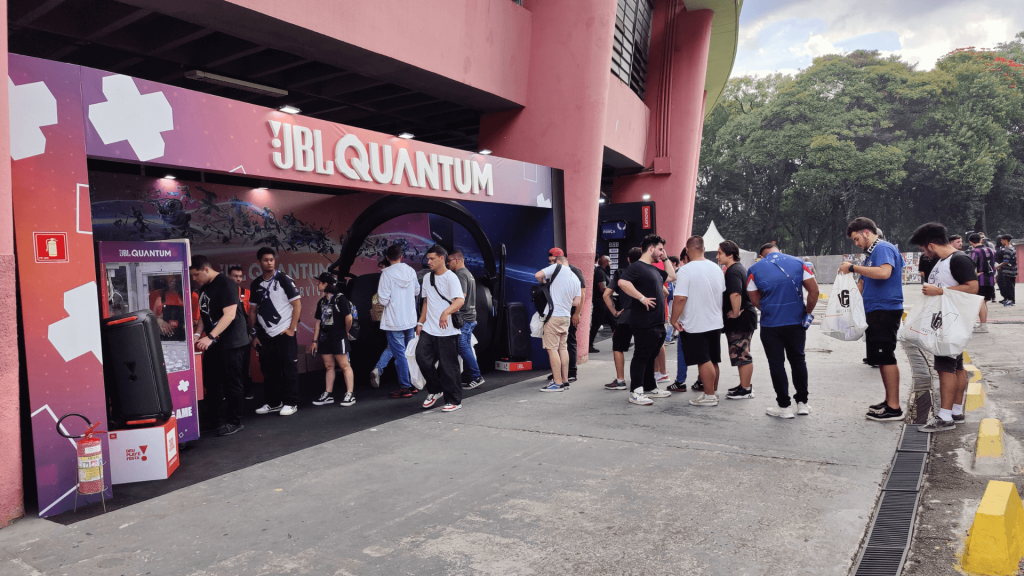
You could hardly have scripted it better. At the Six Invitational 2024 in São Paulo, over 9000 Brazilian fans watched with suspense, then jubilation, as hometown heroes W7M overcame five match points in the Grand Final to force overtime and clinch Rainbow Six Siege’s most prestigious trophy.
The Six Invitational 2024 was both a new record for Rainbow Six Siege esports and a turning point, bucking a trend of declining viewership that had seen consecutively less viewers for each Six Invitational since 2018.
Over 520,000 concurrent viewers watched that Grand Final match, according to Esports Charts data. On the ground, the event was sold out — despite a major jump in capacity from previous R6 tournaments — with hordes of fervent Brazilian fans creating an atmosphere few esports events can claim to match.
Numerous factors combined to forge the new record — tense matches, the notorious Brazilian crowd, big-name teams like FaZe Clan, co-streamers, and great storylines (as if more were needed, twin brothers Thiago and Felipe Ferreira found themselves pit against each other on opposing teams in the grand final).
The stars arguably aligned, and it may well be a long while before Rainbow Six sees similar numbers again. But for Ubisoft, it wasn’t really about hitting record viewership anyway — as the Six Invitational isn’t just about esports.
“It’s a marketing activity,” Francois-Xavier Deniele, Ubisoft’s VP of Global Esports, told Esports Insider of Rainbow Six esports. “Our esport and what we are doing as a team is to serve the gaming community, keep them in the game, engaged with the game.”
While Deniele said they’ll always aim to grow esports viewership, the Rainbow Six publisher falls firmly into the camp of viewing and treating esports as a marketing tool to engage core fans — a tool that proved highly effective in São Paulo this past weekend.
On broadcast, Ubisoft used the prime-time spotlight to announce a slate of new game content. Timing the announcements before the Grand Final for maximum exposure, Ubisoft announced a roadmap of major changes coming to Rainbow Six Siege. Meanwhile, outside the venue, event attendees endured long queues between matches for a chance to play a demo of the new content.

This clever blended approach promoted Rainbow Six Siege, engaged the game’s core fans and brought new eyes to its esports product, all at the same time. For the large majority of gamers who don’t typically take an interest in esports, it was an excuse to stick around for the matches. For new watchers, it was a polished advert for the game.
“The foundation of our esports programme nine years ago was, we need to serve the game and support the content patches we do,” Deniele said. That’s why Ubisoft’s esports calendar is linked to its yearly content roadmap, he added. “Our esport is very important for the game.”
This approach, which focuses more on putting out an attractive esports product than on making money from the event, is perhaps why Ubisoft continued to invest so heavily in Rainbow Six this year despite declining viewership and a wider market correction in esports that has seen other publishers pull back.
The Six Invitational had a $3m prize pool and was arguably the publisher’s most ambitious R6 tournament so far. It was also the first to be operated by tournament organiser BLAST, which now handles both tournament and commercial operations.
“It’s part of the strategy we’ve had for a long time to stay humble and stay at the size we have to be,” Deniele added. “We grew [the esport] a lot over the years but always with the mindset of being linked with the size of the game, where the game is big, and where the game needs to be bigger.
“What we are doing with BLAST is a new way of doing stuff, sharing with the orgs, sharing with our partners — sharing the risks and instabilities — and for me that’s why we can continue to invest so much in this kind of year.”

Commercial success
The Six Invitational 2024 was not just a success amongst fans and viewers — it was also, supposedly, a commercial success too.
BLAST announced the signing of seven sponsors ahead of the event, some of whom ran physical activations at the venue that drew long queues between games. BLAST claimed it was the most commercially successful R6 esports event in history.
Leo Matlock, Business Development Officer at BLAST, told Esports Insider that BLAST and Ubisoft have successfully drawn in both established brands like Intel and Lenovo, and challenger brands who want to make Rainbow Six Siege a cornerstone of their gaming sponsorship strategy.
“We are bringing an intelligent, strategic, ambitious plan to market, and we think we are being successful in how we’re achieving that plan,” Matlock said. “That is what is creating great esports programmes with great events, with great broadcasts, with great sponsorship activities.”
Part of their strategy for keeping the esport healthy is the R6 Share programme, a publisher-team revenue sharing scheme that was first implemented in 2018. Teams get between 30-50% of revenue from in-game skin sales and other esports-themed bundles, split between tier one, tier two and tier three teams. The revenue for the items — which were prominently advertised on broadcast based on the teams that were competing in that match — is worth anywhere from low six figures up to one million dollars, Digiday reported.

Heading into the 2024 season, it is a pivotal time for Rainbow Six Siege esports. Amid the low viewership and reported difficulties generating revenue, a few major organisations announced their exit from the game ahead of or during this season including Astralis, TSM, FURIA and Rogue.
But off the back of the most successful R6 esports event in history, the tide may be turning. Fnatic is returning to the game, ENCE is rumoured to be joining, and at least one other major American esports organisation is set to announce its entry soon, a source with knowledge of the matter told Esports Insider.
The question, though, is will Ubisoft keep spending to keep players and teams interested? “[We] look at what the market wants, where we can help the game grow through our esport, where we need to invest, where we need to reduce some investment,” Deniele said. “But for sure we always have a long-term plan in mind, not just taking short-term decisions.”
As Rainbow Six heads to strategically-important North America for the upcoming season, Ubisoft’s long-term investment in R6 Esports may have finally started paying off.
Editor’s note: Esports Insider was a coverage partner of the R6 Invitational 2024.
